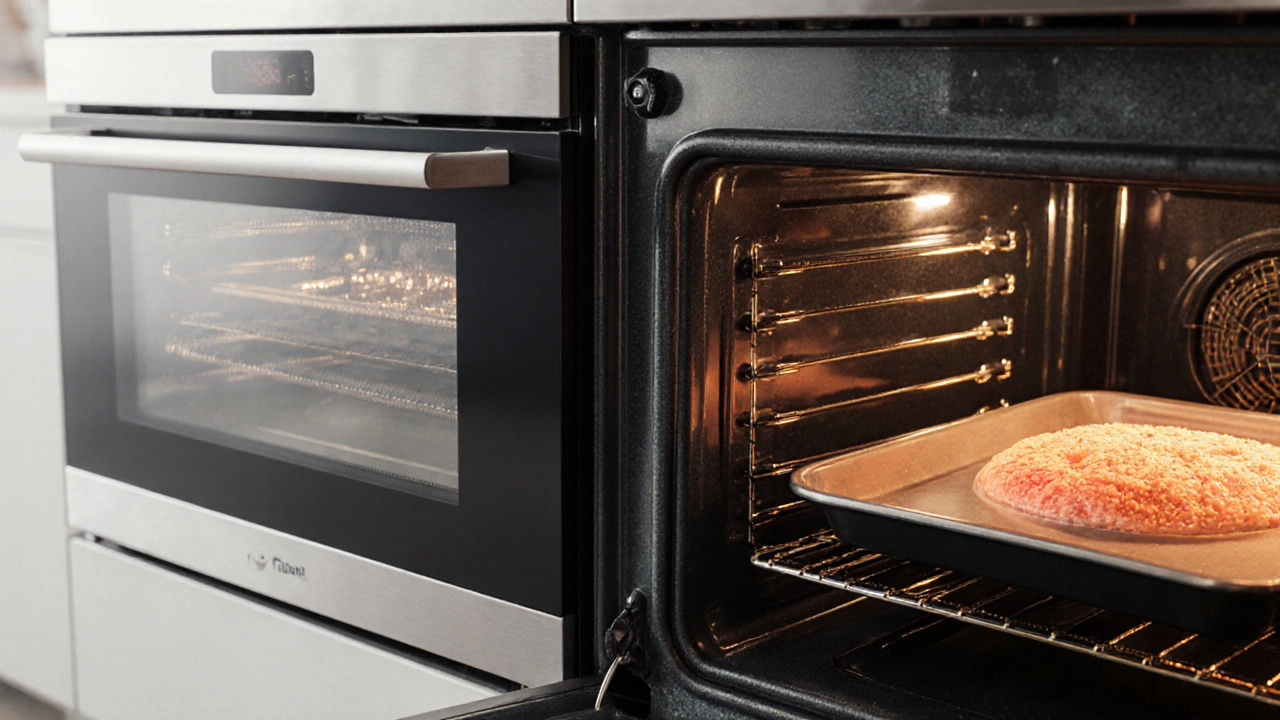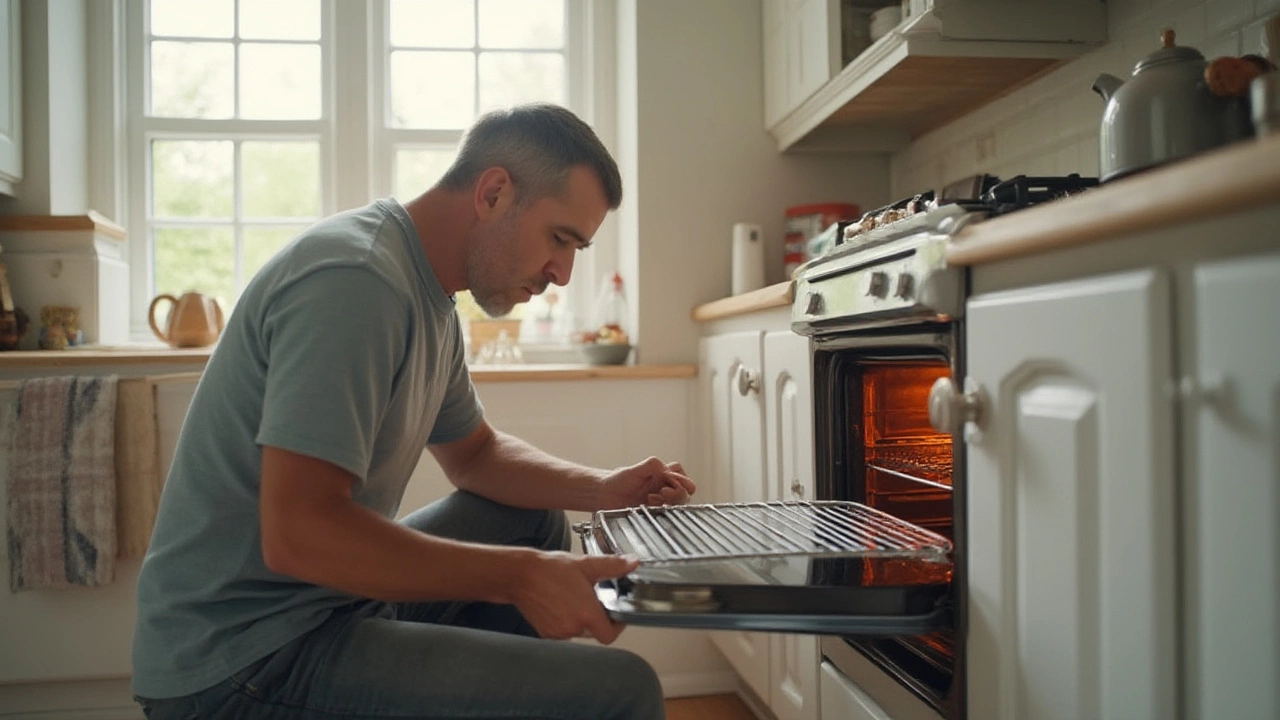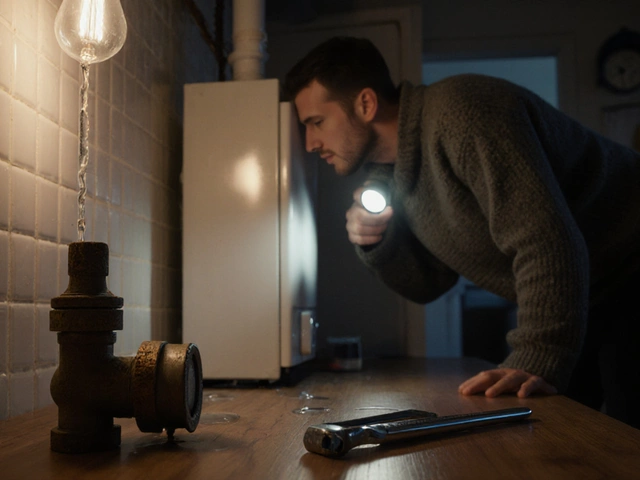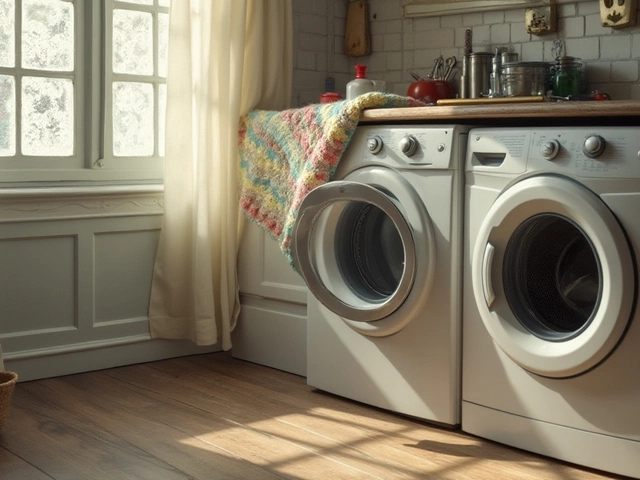Microwave Failure: The Most Common Causes and How to Spot Them
July 10 2025Oven Repair: Quick Fixes, Safety Tips, and When to Call a Pro
If your oven stops heating, makes weird noises, or displays error codes, you’re probably wondering if you can sort it out yourself. The good news: many issues are simple enough for a weekend fix. The bad news: some problems involve gas, electricity, or sealed components that need a certified engineer. Below we break down the most common faults, easy DIY checks, and clear signs it’s time to call Bedford Gas Appliance Repair Services.
Top DIY Checks Before You Call a Technician
1. Power and Circuit – First thing, make sure the oven is actually getting power. Check the plug, the wall socket, and the circuit breaker. A tripped breaker or a loose plug is often the culprit and costs nothing to fix.
2. Oven Door Seal – A cracked or warped door gasket lets heat escape, causing uneven cooking and error codes. Inspect the seal for tears; a quick replacement kit is cheap and easy to install.
3. Heating Elements – For electric ovens, a broken element will show up as no heat or only partial heat. Turn the oven on, let it heat, and watch the element. If you see black spots or it’s completely cold, replace it. Element kits are widely available and usually come with step‑by‑step instructions.
4. Thermostat / Temperature Sensor – Many ovens have a temperature sensor that can fail and cause over‑ or under‑cooking. Use a multimeter (set to resistance) – the sensor should read around 1,100 Ω at room temperature. If the reading is far off, swap it out.
5. Clean the Igniter (Gas Ovens) – If you have a gas oven, the igniter can get covered in food grime. A dull or orange‑glowing igniter often means it’s weak. Turn off gas, let it cool, and gently clean with a soft brush. If it still won’t light, it’s likely time for a replacement.
When to Call a Certified Gas Engineer
Gas appliances are not a DIY playground. If you notice any of the following, stop and call a professional:
- Smell of gas or a hissing sound.
- Repeated error codes after resetting.
- Burnt smells, sparks, or visible electrical damage.
- The oven won’t turn on at all, even after checking the power.
- Complex issues like faulty control boards or wiring problems.
Our team at Bedford Gas Appliance Repair Services is Gas Safe registered, so we can safely test gas lines, replace ignition systems, and work on electronic control units. We also offer a 24‑hour emergency service for urgent breakdowns.
Even if you’ve tried the DIY steps above, a professional check can spot hidden problems before they turn into costly repairs. Plus, a certified engineer will give you a written safety report – handy for insurance or landlord requirements.
Bottom line: simple power or element issues are often DIY‑friendly, but anything involving gas, electronics, or persistent error codes deserves a qualified technician. Keep a spare set of basic tools (screwdrivers, multimeter, socket set) for quick checks, but don’t gamble with safety.
Ready to get your oven back in shape? Try the quick checks, and if the problem persists, give Bedford Gas Appliance Repair Services a call. We’ll have your oven cooking again in no time – safely and efficiently.
 5 Jan
5 Jan
Can Gas Ovens Be Repaired? What You Need to Know Before Calling a Pro
Gas ovens can often be repaired, especially if they're under 10 years old and the issue is a simple part like an igniter or sensor. But if repairs cost too much or the unit is aging, replacement may be smarter.
Read More... 17 Nov
17 Nov
How to Identify an Electric Oven Problem: Common Signs and Quick Checks
Learn how to spot common electric oven problems like no heat, uneven cooking, or strange smells. Simple checks can save you a repair bill-or tell you when it's time to replace it.
Read More... 1 Aug
1 Aug
Are Ovens Easy to Fix? A Straightforward Guide to Simple Oven Repairs
Discover if ovens are easy to fix, common issues you can handle yourself, and when you should call a pro. Includes practical tips and real-world advice.
Read More... 23 Jul
23 Jul
Should You Replace Your Oven's Heating Element? Repair Tips, Costs & Signs
Debating if you should replace your oven's heating element? Get real tips, exact costs, and expert advice on whether oven element repair is worth it.
Read More... 18 Jul
18 Jul
How to Tell If Your Oven Element Is Broken: Signs, Symptoms, and Fixes
Wondering if your oven element is broken? Learn the clear signs, causes, and easy tests to spot and fix a faulty oven element. Get your oven back in action.
Read More... 9 Jul
9 Jul
Why Your Oven Isn’t Heating Up: Common Causes and Fixes
Is your oven not heating up at all or not enough? This detailed guide breaks down every possible cause, with tips to help you fix it fast and right.
Read More... 5 Jul
5 Jul
Should You Repair or Replace an 8-Year-Old Oven? Expert Advice & Real Costs
Debating whether to repair or replace your 8-year-old oven? Learn about real repair costs, expected lifespan, and practical tips to help decide what’s worth it for your kitchen.
Read More... 30 May
30 May
Electric Oven Repair: Why Is There No Heat Coming Out?
Wondering why your electric oven isn't heating up? This article covers the most common reasons for ovens losing their heat and how you can spot and fix the issues. Find out whether it's a simple fix or if you need a professional. Get quick tips and real-world advice to make oven repair less of a headache. If your dinner plans are on hold because of a cold oven, you're in the right place.
Read More... 21 May
21 May
Oven Problem: What Goes Wrong And How To Fix It
Ovens are lifesavers when it comes to home cooking, but they aren't perfect. This article breaks down the most common oven problems, why they happen, and practical ways to fix them. You'll find tips for quick troubleshooting, signs your oven needs real repair, and when it's time to call a pro. Real-world examples and advice are packed in, making it easier to keep your oven running smoothly. No confusing jargon—just straight talk to help you get your kitchen back on track.
Read More... 15 May
15 May
Electric Stove Problems: The Two Most Common Issues You Need to Know
Electric stoves make life easier until something goes wrong. The two most common problems are surprisingly fixable with the right approach. This article explains why your stove might stop heating or act up unpredictably. Expect clear tips to keep your stove running and avoid wasting money on avoidable repairs. Basic troubleshooting can save the day if you know what to look for.
Read More... 28 Mar
28 Mar
Is It Worth Repairing a 5-Year-Old Oven?
Wondering if repairing your 5-year-old electric oven is the right move? Dive into the factors that determine its value, including the cost of repairs versus replacement, lifespan expectations, and common issues. Get insights into whether a repair can save money or if it’s time to shop for a new one. Learn what to consider before making your decision, such as warranty coverage and energy efficiency improvements.
Read More... 27 Mar
27 Mar
Replace Your Oven Element: A DIY Guide
Replacing an oven element might sound daunting, but with the right tools and guidance, it's something you can tackle on your own. This article breaks down the process into simple steps, providing practical tips and safety precautions. Learn how to identify when your oven element needs replacing and what tools you'll need to get the job done. Empower yourself to save time and money by handling this common household repair.
Read More...



